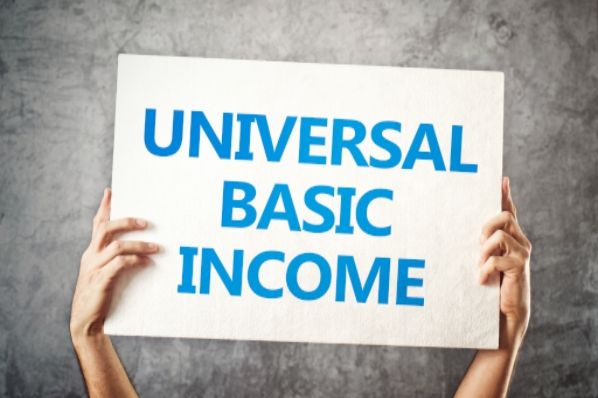Proposals for a universal basic income are in vogue.
They leave me with a troubling question: Who's going to go to work every day to earn all that money required to pay basic incomes to all citizens, including incomes for those who prefer to opt out of work altogether?
So I was glad to see Aaron M. Renn's review of the book that most prominently lays out the arguments for a guaranteed universal income, Basic Income: A Radical Proposal for a Free Society and a Sane Economy. by Philippe Van Parijs and Yannick Vanderborght.
First, what is a universal basic income?
A basic income—an annual, unconditional cash grant to every adult, regardless of need, and without a work requirement to obtain it—would be non-taxable and total about 25 percent of GDP.
The amount of the grant could vary depending on the age of the recipient, but it would start at birth. It would supplement existing safety-net programs and replace only those whose benefits are less than the basic income amount; thus, the grant would establish a floor, but not a ceiling, on government income transfers. (Publicly financed health care would remain outside the system, for example.)
The overarching goal of the basic-income proposal is to ease economic distress stemming from the structural disappearance of work and declining real incomes for lower-skilled workers.
What's not to like? Plenty. The headline of Renn's review is "Post-Work Won't Work." And that is the problem with the basic income: it denigrates work. Because of this, the basic income is both morally and economically destructive.
Our elites, who are ambitious and have jobs that define them, seem to think that the jobs of those they regard as their social inferiors have no such moral value. But they are wrong. Work endows life with meaning and in many cases with upward mobility, even these jobs are not of the sort that our elites would regard as prestigious or meaningful.
Renn writes:
Some humility from the authors would have been welcome about the risks of the radical restructuring that basic income would entail; Van Parijs and Vanderborght see only upside. To illustrate the downside potential, consider the poor results from annual per-capita payments of casino revenues to American Indian tribes (not discussed in the book). Some tribes enjoy a very high “basic income”—sometimes as high as $100,000 per year— in the form of these payments. But as the Economist reports, “as payment grows more Native Americans have stopped working and fallen into a drug and alcohol abuse lifestyle that has carried them back into poverty.” The magazine contrasts this fate with that of more successful tribes like Washington State’s Jamestown S’Klallam, which eliminated poverty by investing in tribal-owned small businesses instead of handing out cash grants.
Another major problem with the basic-income thesis is that its intrinsic vision of society is morally problematic, even perverse: individuals are entitled to a share of social prosperity but have no obligation to contribute anything to it. In the authors’ vision, it is perfectly acceptable for able-bodied young men to collect a perpetual income while living in mom’s basement or a small apartment and doing nothing but play video games and watch Internet porn.
The authors of Basic Income applaud the idea because of its supposed freedom in imposing no obligation to work, which, ironically, is the basic flaw.
Renn doesn't answer my question about how we get the money to pay for basic income, but, if you see that the basic income, however well-intended, is a morally bankrupt idea, then maybe that is a secondary consideration.


